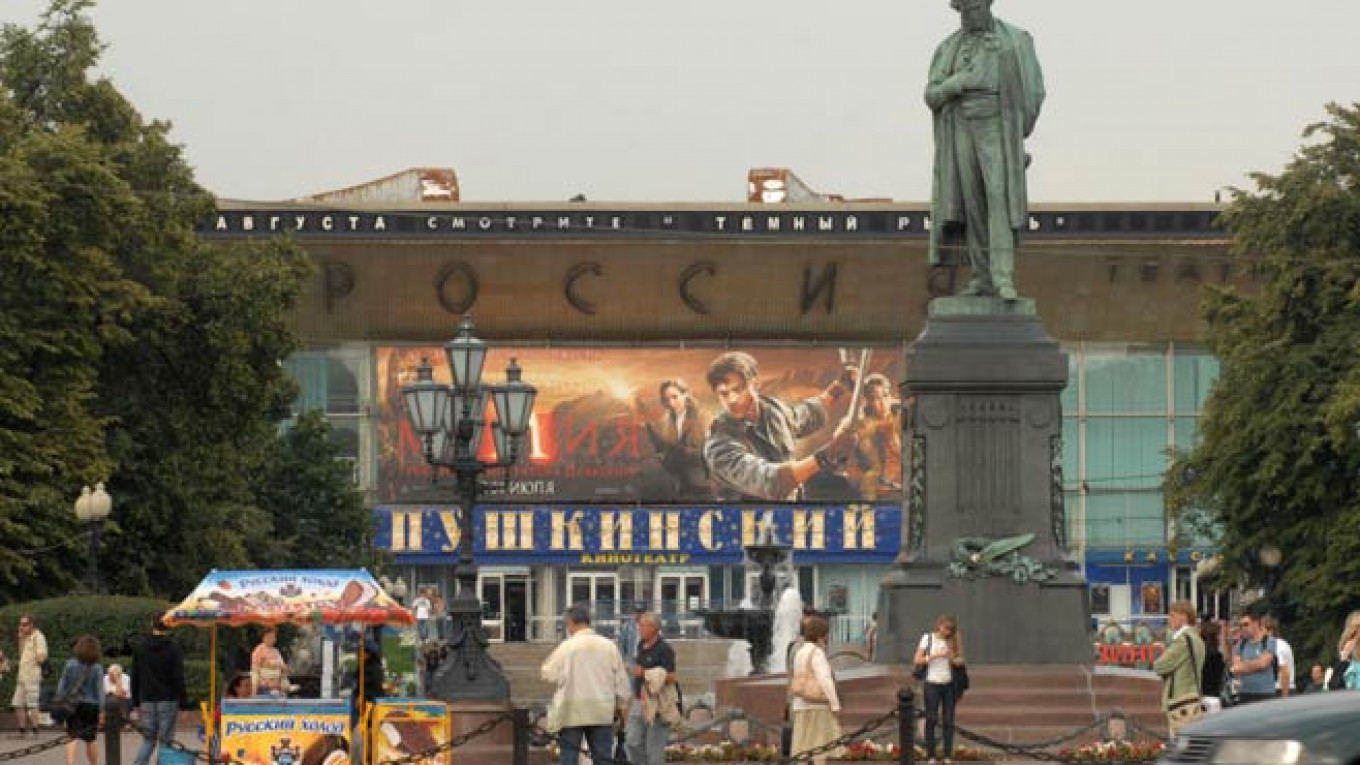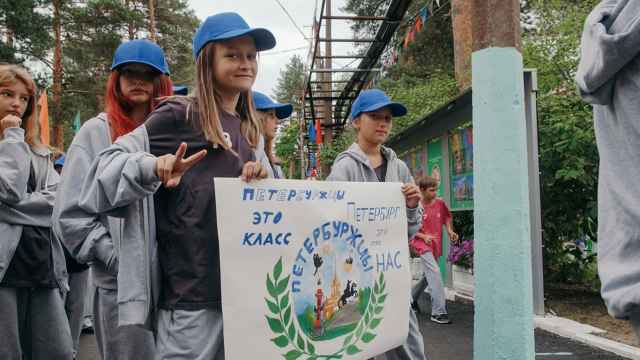President Vladimir Putin has signed a law on Monday prohibiting swearing in public performances, including cinema, theater and other forms of art.
The law will come into effect on July 1, and afterwards swearing in films, plays and concerts will incur penalties of up to 2,500 rubles ($70) for individuals and up to 50,000 rubles for companies and organizations.
A similar measure was passed in April 2013, banning swearing in media.
In December 2013, the Institute of Russian Language at the Russian Academy of Sciences complied a list of four words that constitute swearing and will thus be banned. Two depict male and female reproductive organs, one describes the process of copulation and the last refers to a promiscuous woman.
The most recent law has not yet specified a list of specific curse words.
The law has been met with both criticism and shock, as swearing has been a vital component of Russian art, with some of the nation's best poets and playwrights using curse words prolifically, from classical Alexander Pushkin to contemporary post-modernist Vladimir Sorokin.
According to the Culture Ministry, which is in charge of overseeing the work of theaters and also issuing movie distribution certificates, the newly passed measures will only concern mass culture and will not concern art.
"The law is not aggressive; its only aim is to regulate this sphere, so that swearing will have its purpose," Irina Kaznacheeva, the ministry's spokesperson, told The Moscow Times on Monday.
"It will be up to the artistic director to decide what to do with swearing, whether to break the new law or not, we will not interfere in the process," she said.
Many theater directors and playwrights have complained that the new law is effectively in conflict with intellectual property legislation, according to which authors' works cannot be changed.
"We discussed this situation at our artistic meeting and decided that we will preserve all artistic texts, keeping swearing in them, but prohibiting actors from improvising," said Varvara Faer, director of the BerlusPutin play at Moscow's teater.doc independent theater.
The play satirizes the relationship between Putin and former Italian Prime Minister Silvio Berlusconi, with the main character being a hybrid of the two politicians.
"I am against the use of swearing in life, but I believe artists can use it in their works, in case the work is truly artistic," she said.
Teater.doc also has a play called "Democracy," where the audience is encouraged to participate in the performance by expressing their views aloud. With the new law, if audience members curse, they can be fined.
"We cannot shut the mouths of our audience, so they will have to assume responsibility for what they do," said Faer.
Prominent Russian philosopher and linguist Vadim Rudnev believes that the government's attempt to regulate language means that it increasingly resembles a criminal gang.
"They want to designate their territory: this can be said and this cannot," Rudnev, a member of the structuralist Tartu-Moscow Semiotic school said.
"In reality it is a common practice to swear among the intelligentsia. When writer Maxim Gorky came to visit Tolstoy, who began to swear to him, he got upset. The truth was that by swearing Tolstoy was demonstrating that Gorky was part of the group," he said.
Contact the author at [email protected]
A Message from The Moscow Times:
Dear readers,
We are facing unprecedented challenges. Russia's Prosecutor General's Office has designated The Moscow Times as an "undesirable" organization, criminalizing our work and putting our staff at risk of prosecution. This follows our earlier unjust labeling as a "foreign agent."
These actions are direct attempts to silence independent journalism in Russia. The authorities claim our work "discredits the decisions of the Russian leadership." We see things differently: we strive to provide accurate, unbiased reporting on Russia.
We, the journalists of The Moscow Times, refuse to be silenced. But to continue our work, we need your help.
Your support, no matter how small, makes a world of difference. If you can, please support us monthly starting from just $2. It's quick to set up, and every contribution makes a significant impact.
By supporting The Moscow Times, you're defending open, independent journalism in the face of repression. Thank you for standing with us.
Remind me later.






